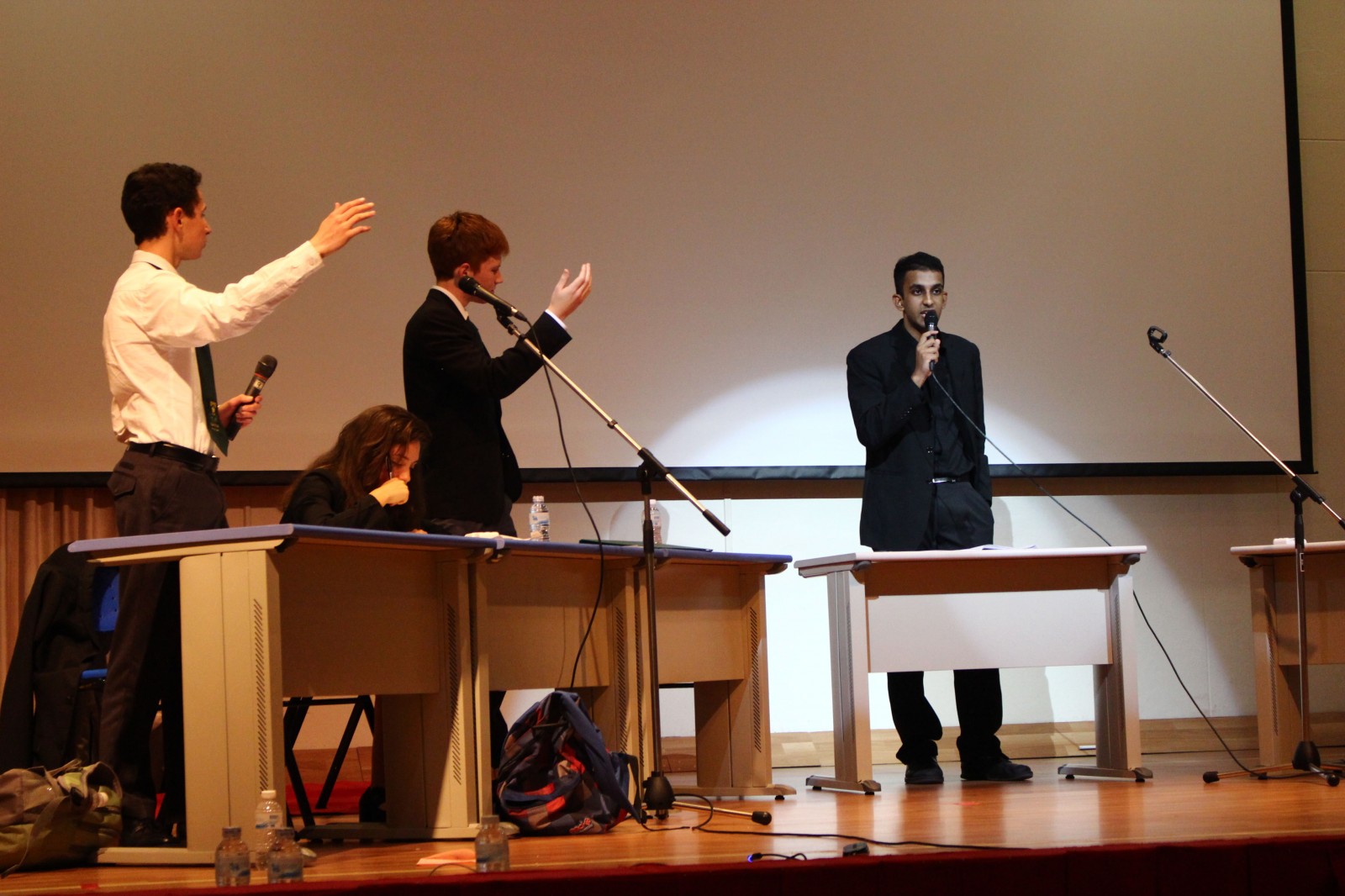IN debating circles, we were once known as ‘that country between Singapore and Thailand’. That is no longer true,” said former chief executive of Yayasan Orator and ex-Universiti Putra Malaysia debater, Muhammad Yunus Zakariah.
And that’s because over the past few years, Malaysian college and school debaters have been slowly making their mark on the international scene. Just a few weeks ago, Deborah Wong, 17, Thevesh Thevanathan, 18, and Nishanth Selvalingam, 18, from Team Malaysia won the Asian World School Debating Championship (AWSDC) in Bangkok, Thailand. Thevesh was even awarded Overall Best Speaker.
They followed that win with a fifth-place finish at the World School Debating Championship a couple weeks later, also in Bangkok.
For those who know what the local school and university debating scene is like these days, the win wouldn’t come as much of a surprise. According to Yunus, 34, Malaysia actually has one of the most congested debate calendars in the world, and the amount of debaters, coaches and events has grown tremendously over the past five years.
In fact, Malaysian debating has grown so much, the World Cup of debates – the World Universities Debating Championships – will be held here in December, after Malaysia beat New Zealand in the bid to host the event.
Even then, Yunus said what Team Malaysia achieved was incredible, calling it an “unprecedented” success for Malaysian debating.
Domestic growth
“I think one of the reasons Malaysian school teams have done well is because we have university debaters coaching them now,” said Yunus. “I used to coach teams myself. I’d work with a team for seven to nine hours a week; but now, I give one-off workshops while the younger university debaters provide the weekly training.”
Aaron Luke, for example, has been coaching his alma mater, SMK Damansara Utama, while waiting for his A-Levels course to commence. The Bank Negara scholar was the top Malaysian high school speaker at the World Schools Debating Championships (WSDC) in both 2012 and 2013.
“Kids as young as Form One are debating these days. They’re intelligent, assertive and inquisitive, too,” said Aaron, adding that there are much better resources and structures for budding debaters now.
“When I entered the debate scene back in 2010, we were still a growing community. Now, we have things like Malaysian Debate TV on YouTube, and a Malaysian Observational Bureau to monitor the quality of debate tournaments.”
Then there’s also the Malaysian Institute for Debate and Public Speaking (MIDP), which Wong credits for Team Malaysia’s success in Bangkok.
“They’ve been instrumental in increasing the quality of local debate tournaments. Under their guidance, Malaysia was able to host the prestigious Asian Schools Debating Championship in Malaysia this year,” said Wong.
The fact that tournaments are giving out bigger prize purses doesn’t hurt either, added Wong.
Yunus, however, warns that the scene still needs more stability to ensure Malaysia continues to produce great debaters.
“The sponsorship revenue generated by the industry and its non-debater following has grown through the years, but these developments either lack consistency or the capacity to be sustained,” he said.
The gift of gab
There’s a reason why so many companies are keen to sponsor debate competitions these days – so they get to access the talent pool of the debating scene.
Being a successful young debater can be a huge advantage for one’s career these days as employers increasingly look for confident, articulate young talents.
“Experience in debating definitely increases employability,” asserted Yunus. “Employees with debating backgrounds are normally independent and require little supervision. They communicate and pitch ideas well, and are good problem solvers.”
Even a young debater like Wong is already starting to see the advantages of being a debater.
“I have seniors in debating who have shone in scholarship interviews because of their debating experience; and as a competitive debater, you also get to network with other bright minds from around the world,” she said.
Speaking of which, according to Luke, who has debated in South Africa and Turkey for the WSDC, debating styles differ from country to country. Malaysians, perhaps surprisingly, tend to be more fiery and passionate.
“We’re more open to discussing controversial and sensitive ideas, and we place more emphasis on logic and analysis. Overseas, speakers focus on presentation, and speak slower and more concisely,” he said.
Overseas, the strength of the university teams also make it hard for Malaysian universities to compete. While our school-level debaters have proved they can mix it with the world’s best, at university level, it’s university against university – not country against country.
“You have your Oxfords and Cambridges and so on, who have debaters from around the world. It’s hard to compete with that,” said Yunus.
Finding a voice
Being a top debater isn’t easy, obviously.
“If debating is a hobby, you need three hours of training a week. But if you’re a world class debater, you train twice a day,” revealed Yunus.
Debaters have to constantly improve their knowledge on current issues, while working on their presentation style and learning to build cases and arguments.
And to top it off, there’s the pressure of speaking – in public.
“The main challenge in debating for me is the pressure,” said Wong. “There’s so much expectation at competitions. The audience expects you to know so much, and they expect you to give brilliant answers all the time. You expect it from yourself, too!”
But ask anyone in debating, and they’ll tell you there’s nothing quite like the rush you get from it.
“I took part in an international inter-varsity competition once, and one of the opponents had grey hair! He was a much older student, doing his second masters, and I was like, ‘why are you still doing this?’” said Yunus with a laugh.
“But debating is addictive. Trust me; it’s hard to give up.”



Tell us what you think!